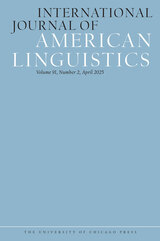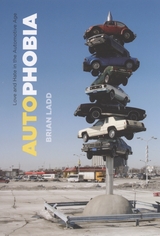
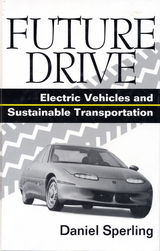
In Future Drive, Daniel Sperling addresses the adverse energy and environmental consequences of increased travel, and analyzes current initiatives to suggest strategies for creating a more environmentally benign system of transportation. Groundbreaking proposals are constructed around the idea of electric propulsion as the key to a sustainable transportation and energy system. Other essential elements include the ideas that:
- improving technology holds more promise than large-scale behavior modification
- technology initiatives must be matched with regulatory and policy initiatives
- government intervention should be flexible and incentive-based, but should also embrace selective technology-forcing measures
- more diversity and experimentation is needed with regard to vehicles and energy technologies
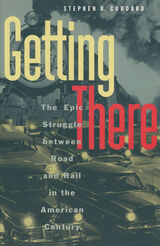
"This is a riveting story: of mighty railroads hamstrung almost overnight by government bureaucrats; of road interests led by General Motors Corp. conspiring in city after city to destroy efficient trolley systems . . . and of freeways that are far from free."—Bill Laitner, Detroit Free Press
"The combination of forces and fates that turned America into a giant parking lot from sea to shining sea is the subject of Stephen B. Goddard's lively pop history. . . . As Mr. Goddard ably points out, road-building and the creation of car-dependent suburbs have become ends in themselves."—James Howard Kunstler, Wall Street Journal
"The strength of Goddard's book is that he understands the complexities of manipulating public opinion to influence legislatures."—David Young, Chicago Tribune
"[Goddard's] book is a deft and easily read history of how transportation has shaped the nation and its economy, and ultimately, how a federation of truck and car interests drastically tilted national policies. . . . For many reasons this is an exceptionally important work."—Jim Dwyer, New York Newsday
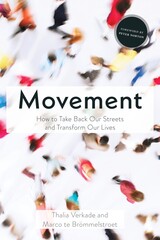
—Bill McKibben, author of The Flag, The Cross, and the Station Wagon
Almost everywhere in the world, streets are designed for travel at the highest speed, giving precedence to the chunkiest vehicles. We take for granted that the streets outside of our homes are designed only for movement from one point to another. But what happens if we radically rethink how we use these public spaces? Could we change our lives for the better?
In Movement: How to Take Back Our Streets and Transform Our Lives, journalist Thalia Verkade and mobility expert (“the cycling professor”) Marco te Brömmelstroet take a three-year shared journey of discovery into the possibilities of our streets. They investigate and question the choices and mechanisms underpinning how these public spaces are designed and look at how they could be different. Verkade and te Brömmelstroet draw inspiration from the Netherlands and look at what other countries are doing, and could do, to diversify how they use their streets and make them safer.
During the pandemic, decision-makers in cities around the world were confronted with the questions of who our streets belong to, how we want to use them, and who gets to decide. Making our communities safer, cleaner, and greener starts with asking these fundamental questions. To truly transform mobility, we need to look far beyond the technical aspects and put people at the center of urban design. Movement will change the way that you view our streets.
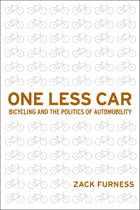
Although millions of people in the United States love to ride bicycles for exercise or leisure, statistics show that only 1% of the total U.S. population ride bicycles for transportation—and barely half as many use bikes to commute to work. In his original and exciting book, One Less Car, Zack Furness examines what it means historically, culturally, socioeconomically, and politically to be a bicycle transportation advocate/activist.
Presenting an underground subculture of bike enthusiasts who aggressively resist car culture, Furness maps out the cultural trajectories between mobility, technology, urban space and everyday life. He connects bicycling to radical politics, public demonstrations, alternative media production (e.g., ‘zines), as well as to the development of community programs throughout the world.
One Less Car also positions the bicycle as an object with which to analyze and critique some of the dominant cultural and political formations in the U.S.—and even breaks down barriers of race, class and gender privilege that are interconnected to mobility. For Furness, bicycles not only liberate people from technology, they also support social and environmental justice. So, he asks, Why aren’t more Americans adopting them for their transportation needs?
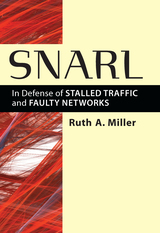
Ruth A. Miller excavates a centuries-old history of nonhuman and nonbiological constitutional engagement and outlines a robust mechanical democracy that challenges existing theories of liberal and human political participation. Drawing on an eclectic set of legal, political, and automotive texts from France, Turkey, and the United States, she proposes a radical mechanical re-articulation of three of the most basic principles of democracy: vitality, mobility, and liberty.
Rather than defending a grand theory of materialist or posthumanist politics, or addressing abstract concepts or “things” writ large, Miller invites readers into a self-contained history of constitutionalism situated in a focused discussion of automobile traffic congestion in Paris, Istanbul, and Boston. Within the mechanical public sphere created by automotive space, Snarl finds a model of democratic politics that transforms our most fundamental assumptions about the nature, and constitutional potential, of life, movement, and freedom.
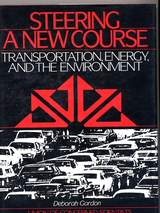
Steering a New Course offers a comprehensive survey and analysis of America's transportation system -- how it contributes to our environmental problems and how we could make it safer, more efficient, and less costly.
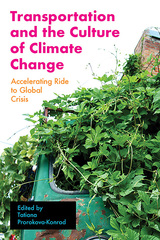
The essays in Transportation and the Culture of Climate Change cover an eclectic range of subject matter, from the association of bicycles with childhood to the songs of Bruce Springsteen, but are united in a central conviction: “Transport is a considerable part of our culture that is as hard to transform as it is for us to stop using fossil fuels—but we do not have an alternative.”
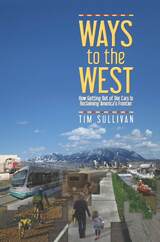
In Ways to the West, Tim Sullivan embarks on a car-less road trip through the Intermountain West, exploring how the region is taking on what may be its greatest challenge: sustainable transportation. Combining personal travel narrative, historical research, and his professional expertise in urban planning, Sullivan takes a critical yet optimistic and often humorous look at how contemporary Western cities are making themselves more hospitable to a life less centered on the personal vehicle.
The modern West was built by the automobile, but so much driving has jeopardized the West’s mystic hold on the American future. At first, automobility heightened the things that made the West great, but love became dependence, and dependence became addiction. Via his travels by bicycle, bus, and train through Las Vegas, Phoenix, Denver, Boise, Salt Lake City, and Portland, Sullivan captures the modern transportation evolution taking place across the region and the resulting ways in which contemporary Western communities are reinterpreting classic American values like mobility, opportunity, adventure, and freedom.
Finding a West created, lost, and reclaimed, Ways to the West will be of great interest to anyone curious about sustainable transportation and the history, geography, and culture of the American West.
READERS
Browse our collection.
PUBLISHERS
See BiblioVault's publisher services.
STUDENT SERVICES
Files for college accessibility offices.
UChicago Accessibility Resources
home | accessibility | search | about | contact us
BiblioVault ® 2001 - 2025
The University of Chicago Press






